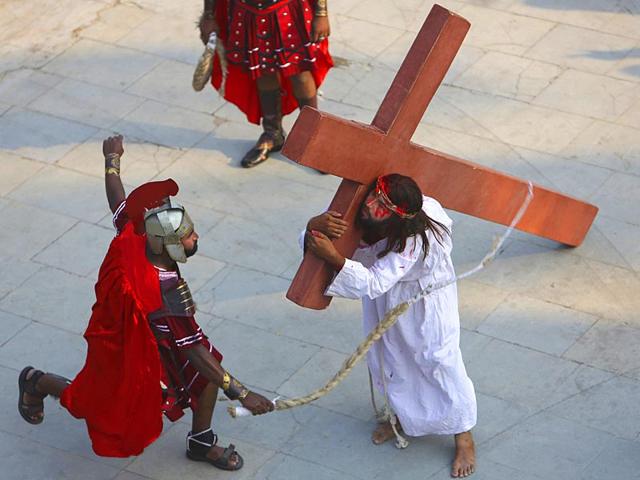Easter thoughts for the Indian soul
Was Ishtar, the ancient Babylonian fertility goddess, re-imagined as Easter by the Roman empire when it turned Christian?
Was Ishtar, the ancient Babylonian fertility goddess, re-imagined as Easter by the Roman empire when it turned Christian? Is Easter’s South European name, Pasquale, derived from the Jewish festival of Pesach? What the new religion took from the popular features of older religions in its first tranche of influence is of historical interest, but since Christianity is very much a part of the modern Indian kaleidoscope, let’s look instead at core Christian values.

As in other creeds, seva is a key Christian principle. The Church in India has a particularly good track record of service in education and health. Nearly all communities have benefited from this. But beyond that, it’s the poor who are at the heart of the gospel. And that’s the sort of seva where interfaith collaboration can only help India. Bettering the lot of the Indian poor together is possibly the simplest way to work constructively for national solidarity. True, a great deal does go on independently. But what if each neighbourhood organisation consciously co-opted members of other faiths to help the poor in a focused area? Imagine, for instance, a scenario in which karyakartas of a Sufi shrine, a church, a gurdwara and a temple meet and draw up a plan to work together on a Begharon ka Seva project and call for shramdaan from their respective congregations.
Whatever its spiritual credo or dogma, every religion is known to say that the best way to realise our humanity is through practical compassion. The Bible has deeply moving words about this. Perhaps the verse most famous in English-educated India is “Cast your bread on the waters; for you shall find it after many days” (Ecclesiastes 11: 1,2) meaning, ‘Help others without thinking of immediate benefit and some day it will come back to you.’ This advice is echoed in another ‘Wisdom Book’ from the Old Testament: “He that has pity upon the poor lends unto the Lord; and that which he has given will he pay him again,” (Proverbs 19:17). This chapter also warns, “Whosoever stops his ears at the cry of the poor, he also shall cry himself, but shall not be heard.” (Proverbs 21:13).
Matthew (5:42) says in the New Testament, “Give to the one who begs from you and do not refuse the one who would borrow from you”. But in India it’s hard to say who belongs to a cartel and who is a genuine case. Givers tend to go by their heart and good instinct on this.
From the point of view of the Indian poor, though, one can understand what a profound impact it has when a preacher quotes verses such as, “But I am poor and needy; yet the Lord thinks upon me: you are my help and my deliverer; O my God, do not delay” (Psalm 40:17), or “Cast all your anxiety on him because he cares for you” (1 Peter 5:7), and “He raises up the poor out of the dust, and lifts the needy out of the dunghill” (Psalms 113:7).
In that spirit, let’s pray for mutual respect and meaningful work that will bring us together for our country.
Stay updated with all the Breaking News and Latest News from Mumbai. Click here for comprehensive coverage of top Cities including Bengaluru, Delhi, Hyderabad, and more across India along with Stay informed on the latest happenings in World News.
Stay updated with all the Breaking News and Latest News from Mumbai. Click here for comprehensive coverage of top Cities including Bengaluru, Delhi, Hyderabad, and more across India along with Stay informed on the latest happenings in World News.





